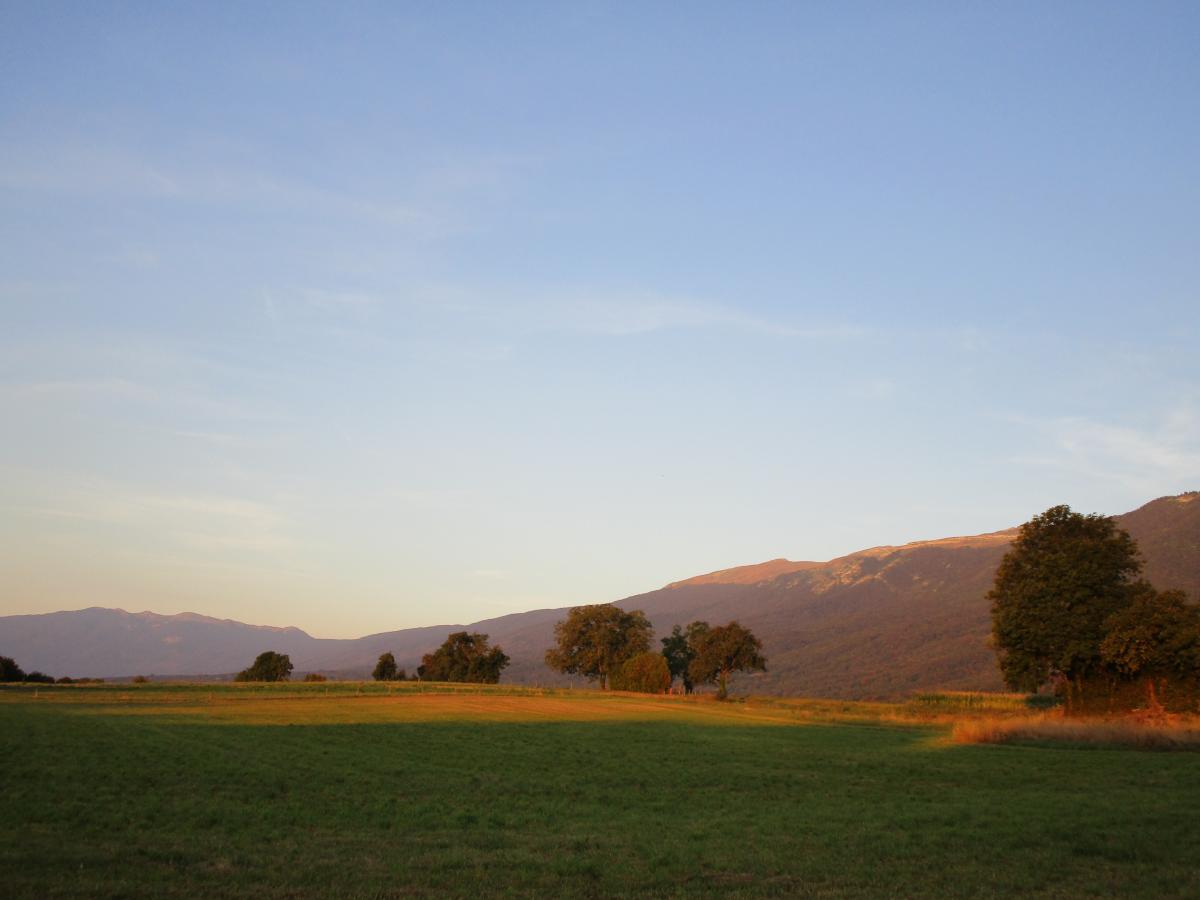TerraNova released its first White Paper: Policy recommendations for sustainable landscape management strategies
European landscapes can play a critical role to develop sustainable pathways supporting ecosystem restoration and the transition to a low carbon future. IUCN European Regional office is a partner organisation to the project TerraNova, the European Landscape Learning Initiative, an Innovative Training Network consortium of the European Union’s Marie Skłodowska-Curie Actions.

Photo: Catherine Fayet
Understanding the history of human-environment interactions in European landscapes is crucial to address the current climate and biodiversity crises. TerraNova is a research programme that trains 15 early-stage researchers to become part of a new generation of multidisciplinary landscape practitioners. Relying on knowledge transfer between disciplines, this project proposes novel approaches to address climate change and human-environment interactions to promote environmental policies in Europe that support restoration of ecosystem functions and transition to a low carbon society.
TerraNova presents its first White Paper: Policy recommendations for sustainable landscape management strategies, has been released. This paper presents TerraNova’s project design, expected outcomes and vision on sustainable landscapes initiatives. TerraNova provides recommendations to policy makers to increase recognition of the key role of landscapes to develop opportunities and innovative solutions to address current landscape challenges such as land abandonment and climate change through investing in nature-based solutions, rewilding, sustainable landscape management and protection of cultural values.
The White Paper outlines that policy makers, land managers and other landscape-related stakeholders often lack information for comprehensive land management. Yet, capturing all biophysical, social, historical, and cultural characteristics of landscapes is essential to build interdisciplinary policy approaches that support both social and environmental benefits while mitigating trade-offs. Such integrated approaches supported by a strong understanding of landscape history will support addressing current environmental and agricultural challenges in Europe.
As highlighted by the White Paper’s authors, even though instruments to support environmental protection have recently been integrated in the Common Agricultural Policy of the European Union (EU), farming subsidies that are detrimental to nature restoration, economic and environmental sustainability remain supported across Europe. In addition, TerraNova promotes giving more space to nature in future European landscapes, notably by presenting rewilding as a central component of restoration of ecosystems dynamics. As part of EU climate action and the European Green Deal, more attention should be given to restoration and rewilding as pillars of improved land management in Europe to jointly address the climate and biodiversity crises.
The IUCN European Regional office currently hosts one of the TerraNova early-stage researchers, Catherine Fayet, who is studying opportunities for restoring nature in abandoned farmlands in Europe to develop alternative pathways to respond to current environmental, social and climate challenges. Being part of the IUCN Europe Nature-Based Solutions team, a special focus across her research work will be on opportunities to implement Nature-Based Solutions on these lands to unite the provision of human well-being and biodiversity benefits. The early-stage researcher’s first scientific paper examines the drivers of alternative post-agricultural abandonment trajectories in Europe. Publication is expected by the end of the year.
TerraNova project website: https://www.terranova-itn.eu/
TerraNova blog: https://www.terranova-itn.eu/:/blog/
IUCN Nature-Based solution page on TerraNova: https://www.iucn.org/regions/europe/our-work/nature-based-solutions/terranova
